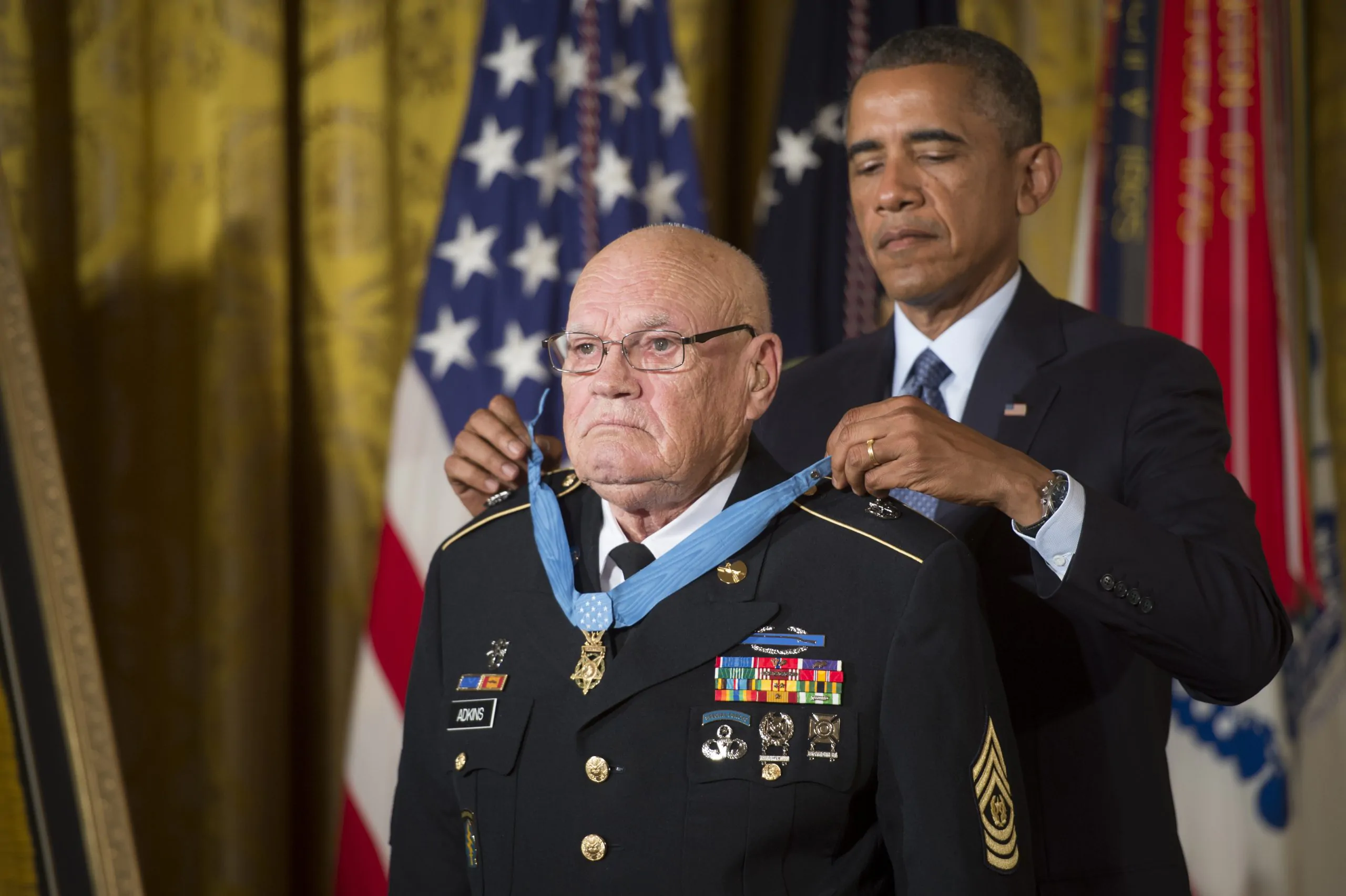Command Sergeant Major Bennie G. Adkins, from Lee County, a recipient of the Congressional Medal of Honor, has died. He was 86.
“We are deeply saddened to notify you that after a courageous battle with COVID-19, Command Sergeant Major Bennie G. Adkins departed this life today, with beloved family at his bedside,” the Bennie Adkins Foundation said in a statement.
A native of Waurika, Oklahoma, Adkins served more than 20 years in the U.S. Army, over 13 of those years spent as a Green Beret in 7th, 3rd, 6th, and 5th Special Forces Groups.
He deployed to Vietnam three times, his heroic efforts in one 1966 battle later recognized in 2014 with the awarding of the Congressional Medal of Honor.
“During the thirty-eight hour battle and forty-eight hours of escape and evasion, fighting with mortars, machine guns, recoilless rifles, small arms, and hand grenades, it was estimated that Sergeant First Class Adkins killed between 135 and 175 of the enemy while sustaining eighteen different wounds to his body,” his citation reads. “Sergeant First Class Adkins’ extraordinary heroism and selflessness above and beyond the call of duty are in keeping with the highest traditions of the military service and reflect great credit upon himself, Detachment A-102, 5th Special Forces Group, 1st Special Forces and the United States Army.”
Following retirement in 1978 at the rank of Command Sergeant Major, Adkins earned his bachelor’s degree from Troy State University, in 1979. He earned his Master’s Degree in Education, in 1982, and then, a second Master’s Degree in Management, in 1988, all from Troy State University.
While pursuing his degrees, he established the Adkins Accounting Service in Auburn, where he served as its CEO for 22 years. He also taught night classes at Alabama’s Southern Union Junior College for 10 years and at Auburn University for six years.
In 2017, he established The Bennie Adkins Foundation, with the mission of providing educational scholarships to Special Forces soldiers. Honoring Command Sergeant Major Adkins’ commitment to service, education, and to his Special Forces brethren, his eponymous foundation aims “to reward deserving soldiers who have demonstrated the courage, sacrifice, and patriotism inherent in the Special Forces, and aid them as they continue trying to improve themselves through education.”
He is preceded in death by his wife, Mary Adkins, and is survived by daughter Mary Ann Adkins Blake (David), sons Michael Adkins (Christine), and W. Keith Adkins (Jaime), as well as many grandchildren and great-grandchildren.



















































